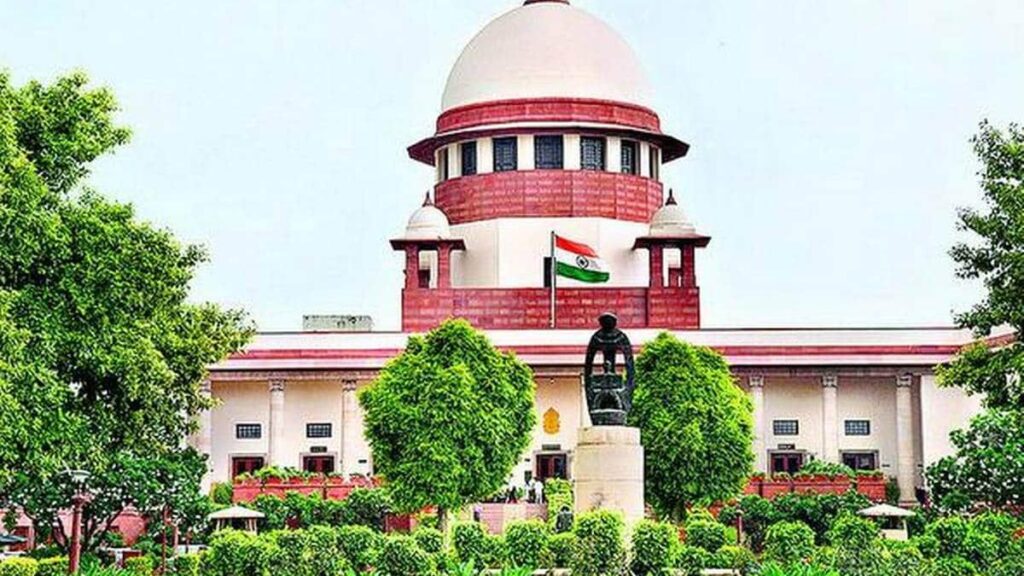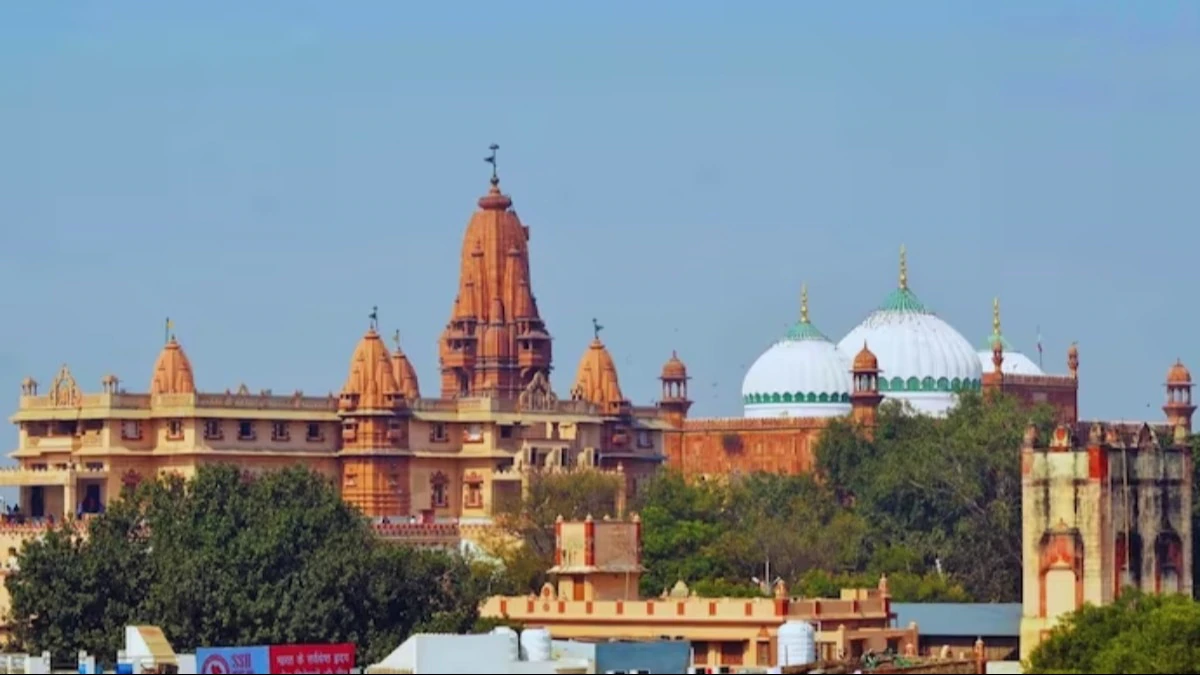New Delhi: In a move set to reignite a decades-old religious and legal tussle, the Supreme Court of India on Friday declined to stay an Allahabad High Court order that permitted a court-monitored survey of the Shahi Idgah mosque complex in Mathura. The complex stands adjacent to the disputed Krishna Janmabhoomi site, where a long-standing conflict over ownership has simmered for centuries.
The Allahabad High Court’s December 14th order authorized a three-member team of advocate commissioners to conduct a “primary survey” of the Idgah complex. This preliminary investigation aimed to gather basic information about the structure, its dimensions, and any existing structures within the premises. Notably, the petitioners in the High Court case, a Hindu group, had sought a detailed archaeological survey, claiming the presence of a temple beneath the mosque.

The Supreme Court, led by Justice Sanjiv Khanna, refused to stay the High Court order, stating that such a decision couldn’t be made based solely on an oral plea. However, the court granted the petitioner’s request for a hearing on the matter in January 2024, where they could present their arguments against the survey.
This development has sent shockwaves through religious communities and legal circles in India. The Shahi Idgah complex holds immense cultural and religious significance for both Hindus and Muslims. While Hindus believe it was built upon the ruins of an ancient Krishna temple, Muslims have worshipped at the mosque for centuries.
The Supreme Court’s decision to allow the survey, albeit a preliminary one, has been met with mixed reactions. Hindu groups have hailed it as a step towards resolving the long-standing dispute and uncovering the truth about the Janmabhoomi site. However, Muslim leaders have expressed concerns about the survey’s potential to disturb the peace and harmony of the region. They fear it could be a precursor to further legal challenges aiming to demolish the mosque and build a temple in its place.
The legal battle over the Mathura site dates back to the 1960s, and the Ayodhya Ram Janmabhoomi case served as a stark reminder of the potential for such disputes to ignite social unrest. The Supreme Court’s upcoming hearing in January will be crucial in determining the fate of the Shahi Idgah complex and the future course of this sensitive religious and legal saga.
Key Points:
- Supreme Court declined to stay the Allahabad High Court order allowing a survey of the Mathura Idgah complex.
- The survey aims to gather basic information about the structure and its surroundings.
- The decision has sparked concerns about potential religious tensions and legal challenges.
- Supreme Court to hear the case in January 2024, determining the future of the Idgah complex and the ongoing dispute.
Conclusion: The Supreme Court’s decision to allow the Mathura Idgah survey is a significant development in the ongoing land dispute. While the court has assured that the survey will be limited in scope, it remains to be seen how this move will impact the future of the Idgah mosque and the broader socio-political landscape of India. The coming weeks and months are likely to be crucial in determining the fate of this centuries-old conflict, and the eyes of the nation will be on the Supreme Court as it navigates this sensitive and complex issue.
Readmore:
Stay updated on the startup world with our Startup News and Funding News. Discover Founder Profiles, Startup Profiles, Founders Interviews, and Success Stories. Gain insights through in-depth articles and resources. Follow us on Facebook, Twitter, Instagram and LinkedInfor regular updates and join our vibrant startup community.



